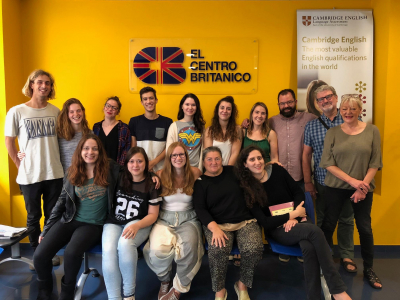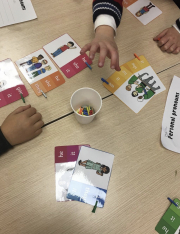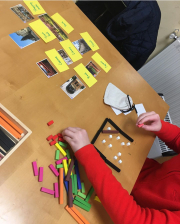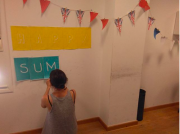Living in a rural community has shaped my life in many ways. First, when I became an English student, I wouldn’t attend lessons in English schools because they were too far from my living location, a small village in Northern Spain. Therefore I studied using online tools, some of them successfully. At a certain point, I needed a face-to-face tutor. And here comes the voyage: during the year it took me to prepare my C2 Certificate, I had to take four different buses every week in order to reach my English school. It was certainly a time-consuming journey.
Secondly, living in a small remote community has shaped my life as a teacher. My first training course was online, of course, because I couldn’t attend physically any training course, nor they were offered in a 500 km radio location. It was a very basic course for new teachers while I was preparing for the CELTA course. At the same time, I started tutoring small groups of children and adults. Nowadays, I still appreciate the confidence those clients had put in my teaching because, on the other hand, dozens of students were travelling 80 daily kilometres to the nearest town to attend lessons in an English school. That was my issue in the past, that is the issue that students suffer if they want to improve their English and live in an isolated area. It is sort of an issue if you live in a rural area, kind of doomed. But we are not doomed really, we are not second-hand residents. Nevertheless, I am not writing here in order to victimise ourselves but to recognise our own value as citizens and, particularly, as teachers.
My teaching qualification was imperative and necessary to a certain extent, as I had grown a solid base of clients during the last four years. I highly appreciated the convenience of a CELTA interview online, since I was working as a teacher already, full time. Once I got into the course, I realised I was the only rural teacher. I had no colleagues, mates, no references.
If I was asked, I would say the CELTA marked a before and an after in my career. It was a turning point in my professional life. Looking from a different angle, I recognise I felt estranged from the teaching community those days. Furthermore, I didn’t recognise myself as a teacher.
After getting my certificate, I felt valued and accepted within the teaching community, I met colleagues and more importantly, I validated myself as an EFL teacher. Once this had been done, then moving into teacher development was the next step, as much imperative and necessary as the CELTA was.
Within the ELT world, teacher development is crucial due to many reasons: refreshing and improve teaching techniques, gaining knowledge about a variety of fields that might be new for some of us and sharing experiences with fellow teachers, just to quote a few.
Taking teacher development into account, last year I attended a summer school programme at the University of Oxford. As always as I engage in teacher training, I enjoy myself, surrounded by colleagues and discussing ideas, talking about classroom management or revising techniques, to mention a few. My fellow colleagues agree with me on this matter: teacher training and self-development is vital for EFL tutors, especially those self-employed, freelance, working in small and isolated communities, like myself.
I will not lie about it, being freelance is not easy. Being freelance in a rural environment is a crusade, it is a long-distance race in which many finishing lines have to be crossed.
Let’s face unemployment, emigration, low population rates (just to quote the biggest issues that rural communities are confronting), but let’s get students interested in learning English outside the formal education system. Our aim as teachers within the non-formal education is to make sure those students keep their interest alive without having to pop into a car for one hour each day. Let’s provide this service in their small communities and make sure they want to attend English lessons after school. Be creative. Assess them. Support them in each exam. It is our duty to keep on track with our own education and development as well, because as teachers we should never stop being students. We are lifelong learners.
I teach a wide range of ages, from 3-year-olds to adults, individually or in small groups. Working with small groups or private tutoring is not a joy for some teachers. However, I take pleasure in it. I have known some of my students for five years, I have seen them grow throughout the years. There is some complicity, even confidence, when teaching the same students for a long time. We take joy together when we talk about our surroundings and our roots, and some lesson planning is inherently bound to the environment we live in. It is our shared heritage. It is my plan to keep sharing my heritage with students, although the uncertainty is (fore)shadowing the future. But that matter is an interesting topic for another post.
Cristina Fernández is a CELTA qualified tutor living and working as a freelance EFL teacher in rural Galicia (Northern Spain). She has many years of experience teaching young learners and teenagers in small hamlets and villages. She has a special interest in teaching in rural communities and isolated areas. Cristina is also a member of IATEFL and part of the Young Learners Special Interest Group.





